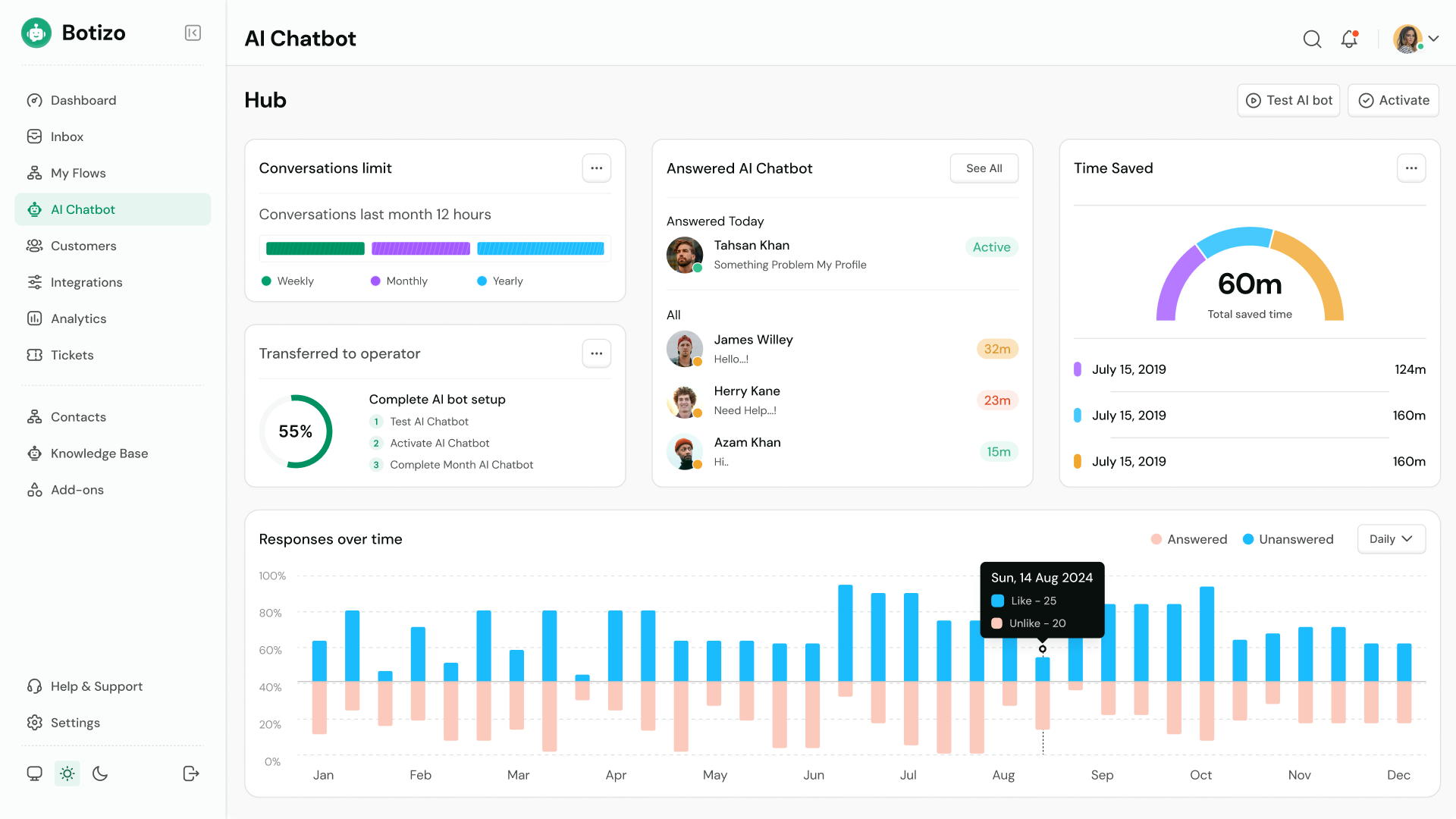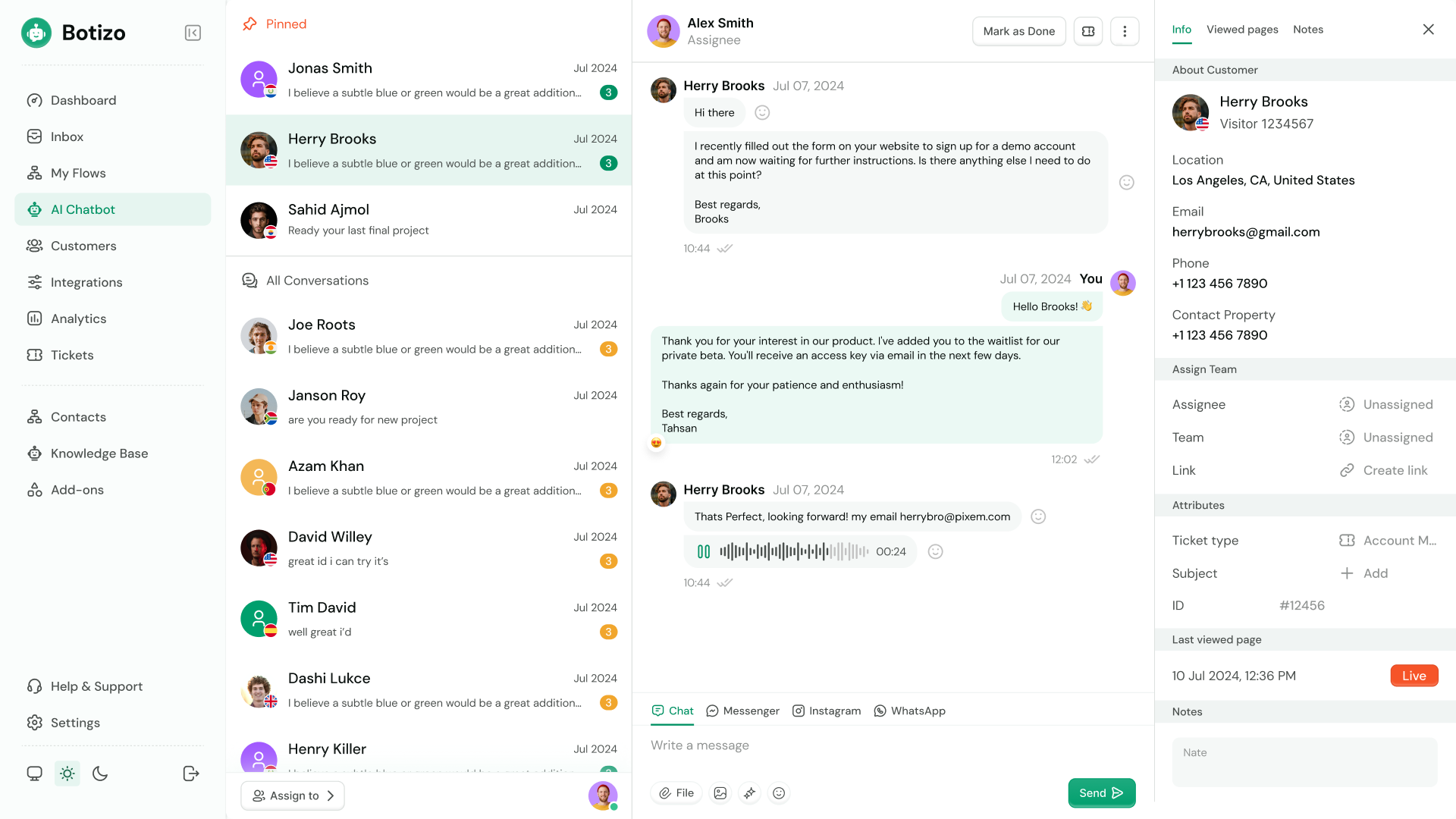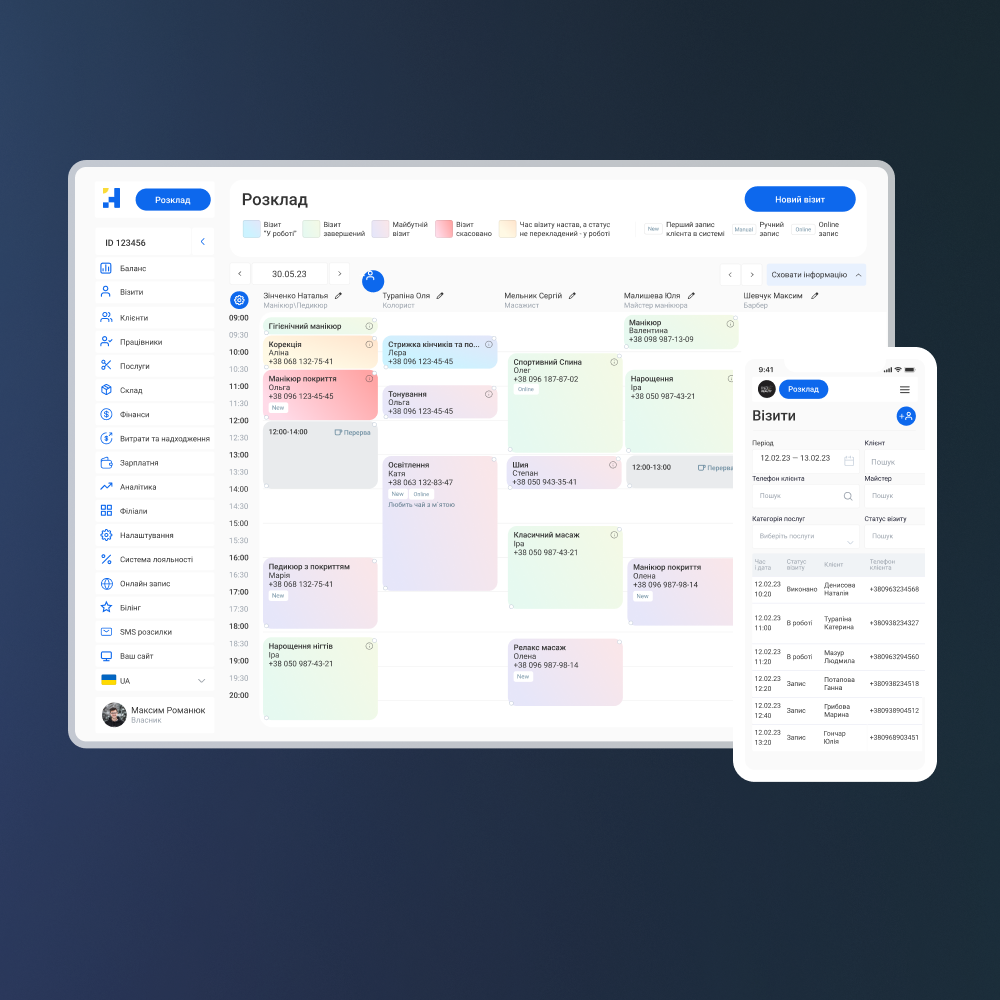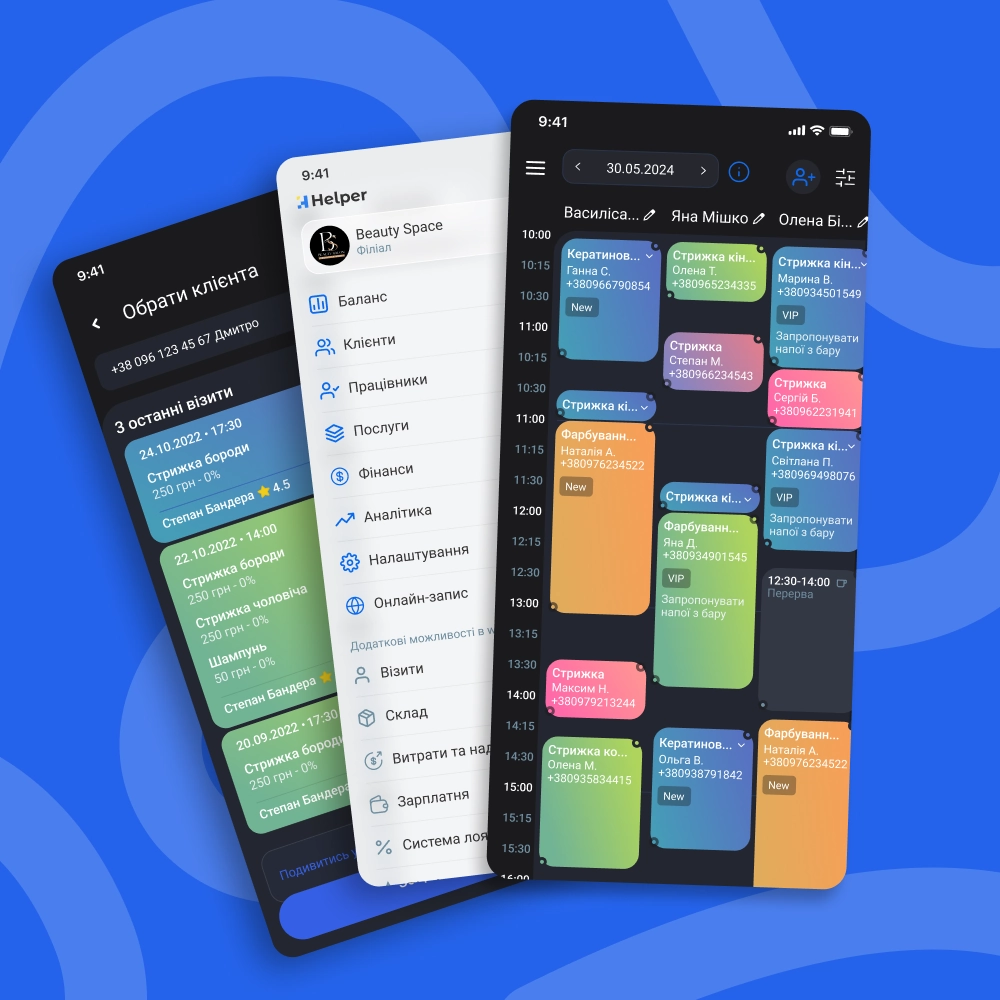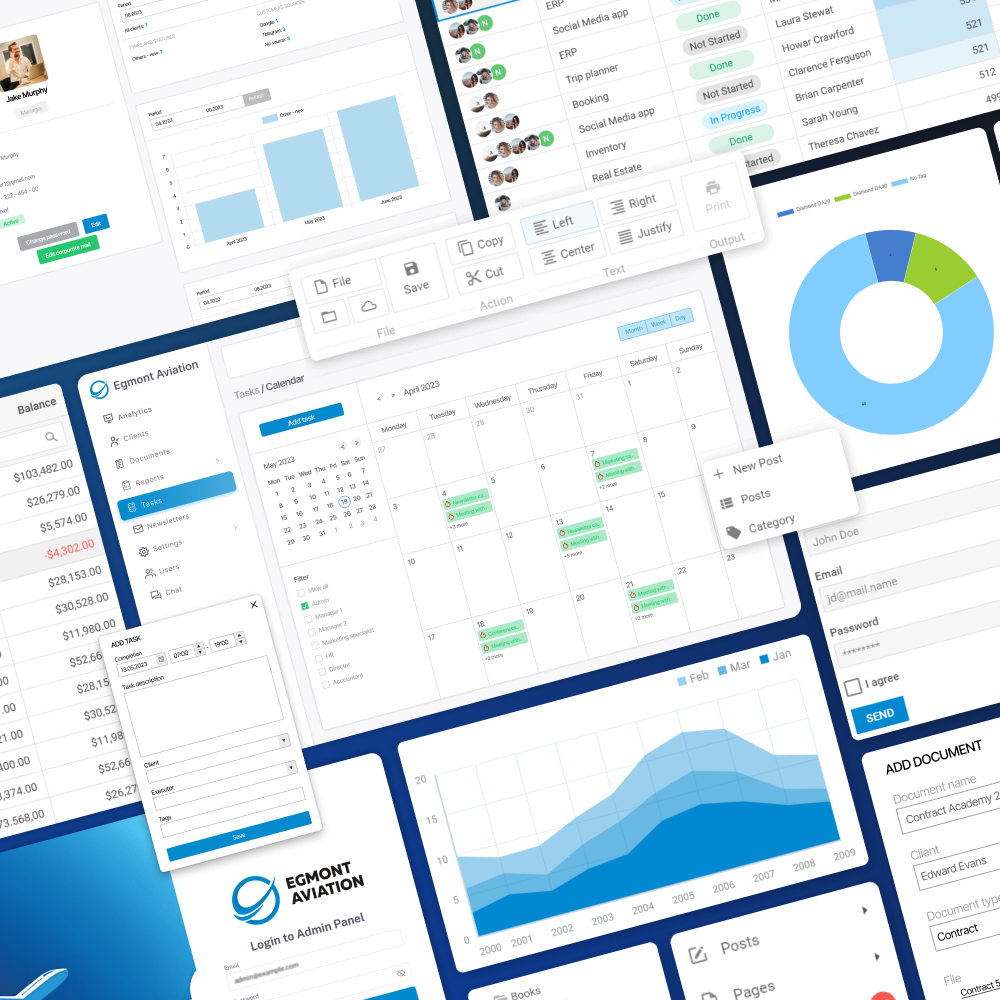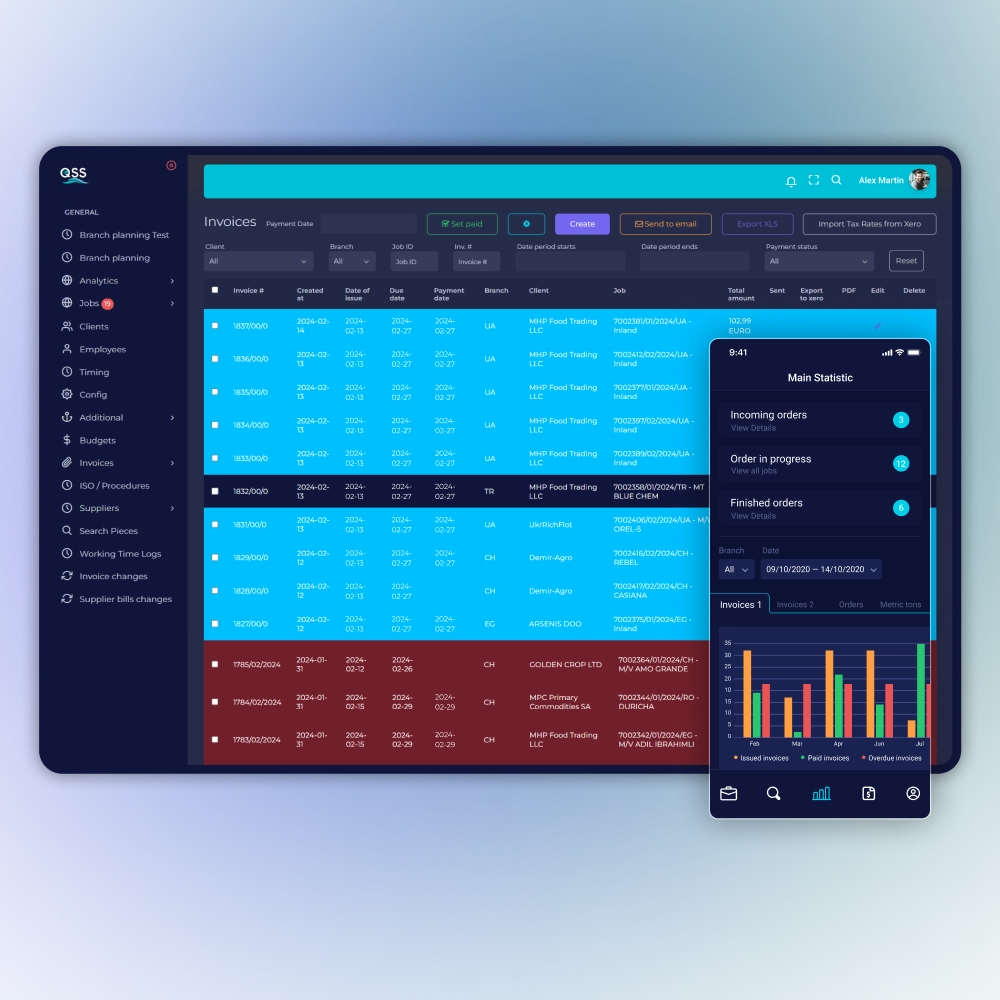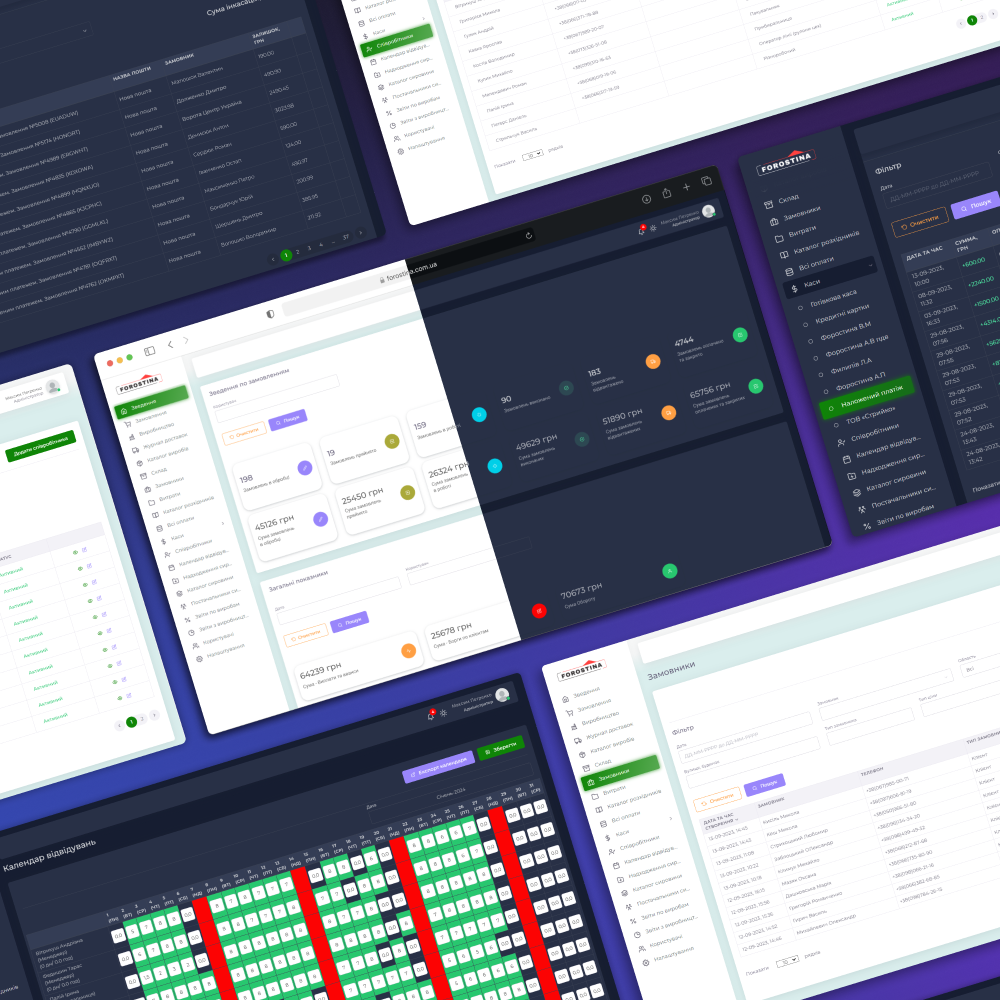








CRM/ERP with AI automation
Individual CRM and ERP have ceased to be tools only for storing data and managing tasks. Today, they are turning into intelligent automation centers, where artificial intelligence plays a key role. Such new-generation systems not only manage processes, but also predict results, offer ready-made templates for various business scenarios, analyze key indicators and connect AI assistants to workflows that provide support to employees in daily tasks.
AVADA MEDIA helps implement such solutions, supporting the project at every stage. Our specialists have extensive experience in developing automation and artificial intelligence scenarios into key processes. Thanks to a clear methodology, control of deadlines, modern technologies and approaches, you get AI CRM and ERP that not only meet the requirements, but also ensure stability, scalability and strategic development of the company.
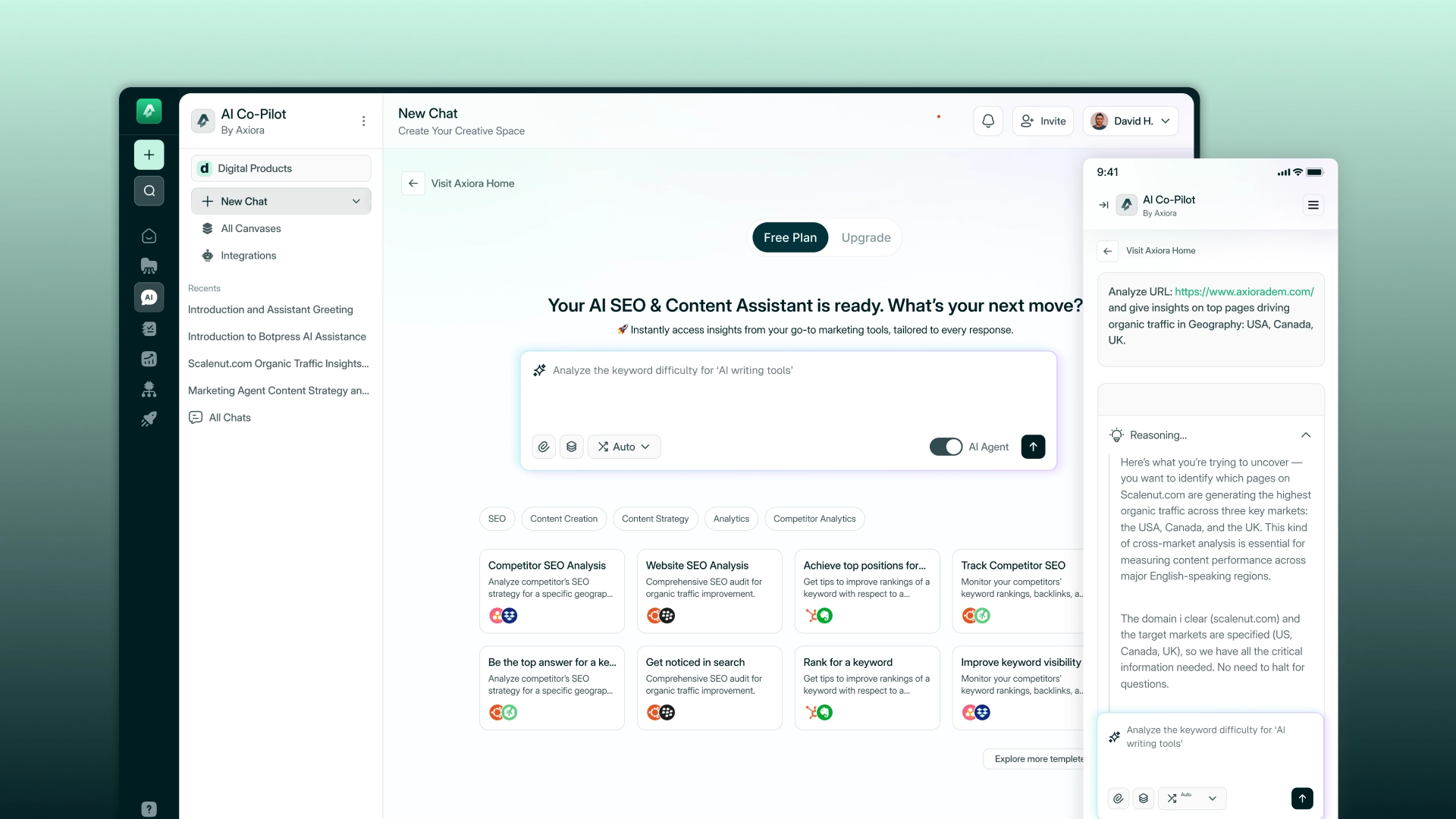
How do AI CRM/ERP systems differ from classic ones?
Intelligent CRM and ERP systems with AI modules go beyond standard functionality, transforming static data into a dynamic and useful resource. AI in CRM and ERP can be integrated into every stage of work - from the first contact with the client to analytical reporting. This opens up a number of possibilities.
ERP and CRM features and capabilities with AI
- Automation of interactions. Intelligent agents and voice bots analyze requests, distribute tasks based on the competencies and workload of employees, suggest priorities, and form personalized scenarios for interacting with customers in real time.
- Predictive analytics: AI in business systems can analyze user queries and behavior to predict the likelihood of closing a deal, customer churn, or the most appropriate products to cross-sell. This allows sales to focus on the most promising opportunities.
- AI assistants for real-time support can provide employees with contextual recommendations. Data from documents and databases is indexed in a vector storage, after which the AI assistant accesses it through RAG (Retrieval-Augmented Generation). It can suggest the optimal next step in working with a customer, remind about important events or suggest the most effective conversation script.
- Resource management. In ERP, AI optimizes logistics, plans production, and manages inventory, minimizing costs and increasing efficiency across the entire supply chain.
- Personalization of interactions. AI in CRM analyzes the preferences and purchase history of each customer, which allows it to form recommendations and scenarios, as well as make unique and highly relevant offers, increasing customer loyalty.
- Comprehensive AI automation. Seamless integration with external services using a low-code platform allows you to create complex, multi-stage automated workflows, combining CRM/ERP with marketing platforms, messengers and other services. Automation of AI agents through n8n accumulates all information from different sources in a single space for effective work of AI assistants and comprehensive analytics.
- Self-learning system. AI agents can work both according to predefined rules and learn based on employee behavior and client data, gradually offering increasingly accurate solutions and action scenarios.
These capabilities turn CRM and ERP into a full-fledged intelligent tool that adapts to the specifics of the business and helps companies manage processes proactively.
What benefits does AI in CRM and ERP systems provide to businesses?
Implementing an intelligent AI-based CRM/ERP system provides tangible and measurable benefits at all levels.
- Increase profits. AI analytics and predictive models allow you to identify the most promising deals, optimize pricing, and increase conversion, leading to increased revenue.
- Resource savings. Intelligent automation of routine tasks, such as data entry and report generation, frees up employees' working time for more complex and creative tasks.
- Process optimization. An AI-based business system eliminates and prevents bottlenecks in workflows, reduces response time to customer requests, and minimizes the likelihood of errors, making the business more flexible and efficient.
- Making informed decisions. Always up-to-date data, interactive dashboards, and accurate forecasts enable leaders to make informed and strategically sound decisions based on facts, not intuition.
- Improving customer experience. Personalized offers and fast service with AI assistants increase customer satisfaction and loyalty, promote customer retention and repeat sales.
- Increased competitiveness. AI technologies demonstrate a company's willingness to invest in service and innovation. This strengthens its image in the market and allows it to stay ahead of competitors who are still using outdated solutions.
- Elimination of the human factor. Unlike a person, an AI assistant communicates and makes decisions based solely on current data and logic, and not on emotions or subjective assessments. Thus, the implementation of AI in CRM and ERP systems ensures objectivity and predictability in work, increases the reliability and accuracy of all business processes.
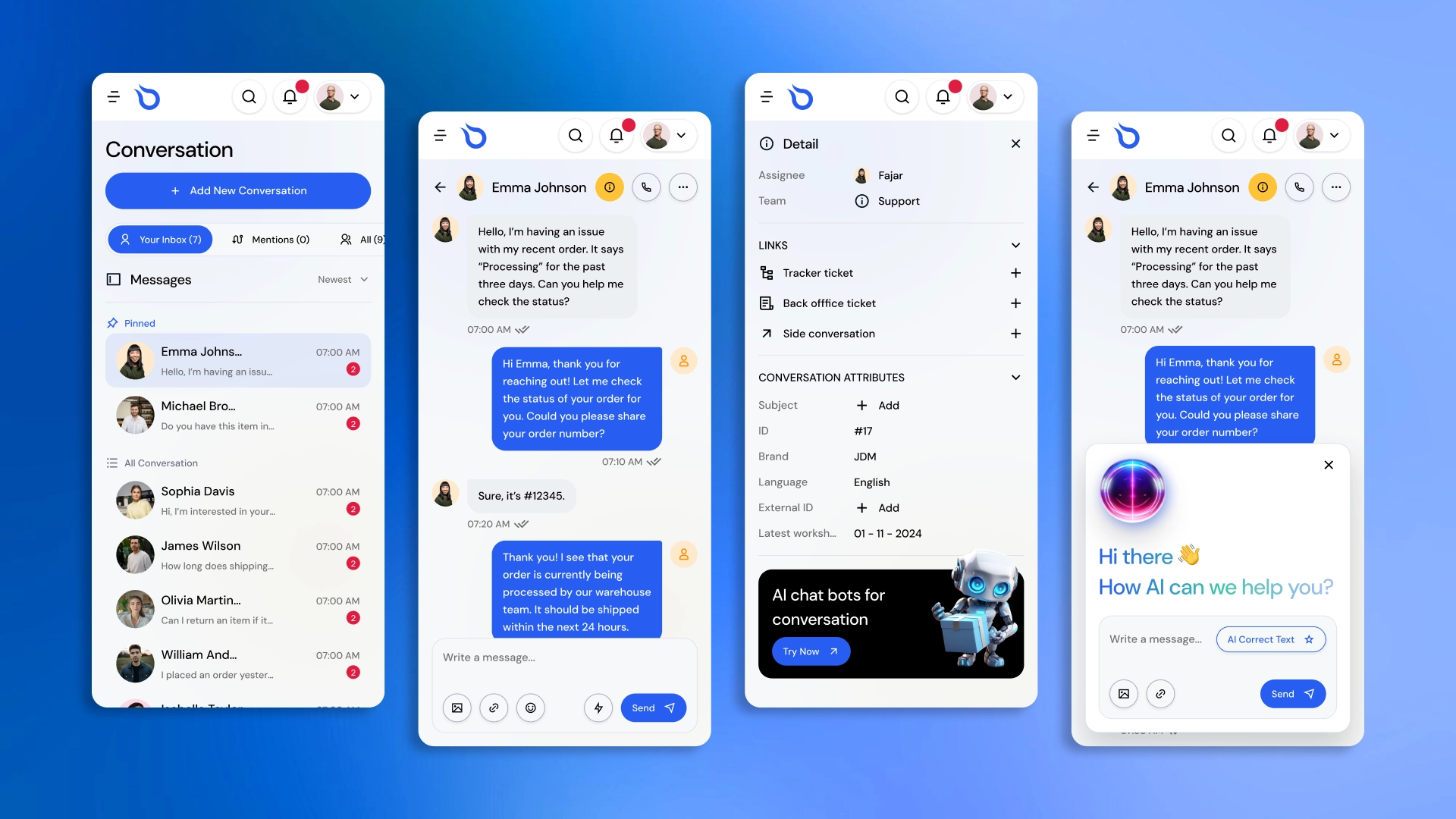
Implementation stages in ERP/CRM AI
When developing CRM and ERP with AI, we adhere to a systematic approach and consistency. This allows us to minimize risks, ensure project transparency, and flexibly adapt the system to the specifics of the business.
- Business process and requirements analysis. First of all, our specialists study current processes, identify bottlenecks and determine where artificial intelligence can bring the greatest benefit - in the automation of repetitive tasks, forecasting indicators or intelligent notifications. Together with the customer, they form the requirements and concept of the future system, describing them in detail in the technical specifications.
- Architecture design and prototyping. Next, they design the system architecture, intelligent algorithms, and AI mechanisms. They define functional modules, automated scenarios, AI triggers, and messages tailored to the tasks of different company departments, as well as integration points with external services. Next, they create interface prototypes with thoughtful and adaptive design for different devices and work scenarios to demonstrate to the customer how the system will work and make adjustments before the project begins.
- Development, training and integration. Front-end developers implement the user interface, which includes admin panels, chat interfaces for communicating with AI agents and data visualization. To do this, they use modern frameworks and libraries - React, Vue, Angular, as well as visualization tools. Back-end developers design business logic, ensure data storage and processing, APIs and integrations, scalability and stability of the system using technologies such as Node.js, .NET, Python/Django, PHP/Laravel. AI modules are integrated into the company's digital infrastructure - messengers, IP telephony, third-party services and corporate databases (PostgreSQL, MySQL, MongoDB) so that AI agents in CRM and ERP have access to information and can quickly respond to events. To increase the accuracy of responses and personalization, the RAG approach is used, which allows using the company's internal knowledge bases when generating answers.
- Testing and launch. Before launch, QA specialists conduct comprehensive testing of the system: they check the correctness of business logic, the stability of modules, the quality of integrations, and the accuracy of AI algorithms. Based on the results of testing, developers optimize the program and launch it into operation, and training is provided for the customer's team to ensure that the transition to the new intelligent environment is as efficient as possible.
- Support and Scaling . After launching a CRM or ERP with AI automation, we offer ongoing technical support and monitoring of the system. As part of further support, we optimize AI algorithms, expand automation scenarios, and add new integrations. This ensures relevance, stability, and maximum return on AI tools in the long term.
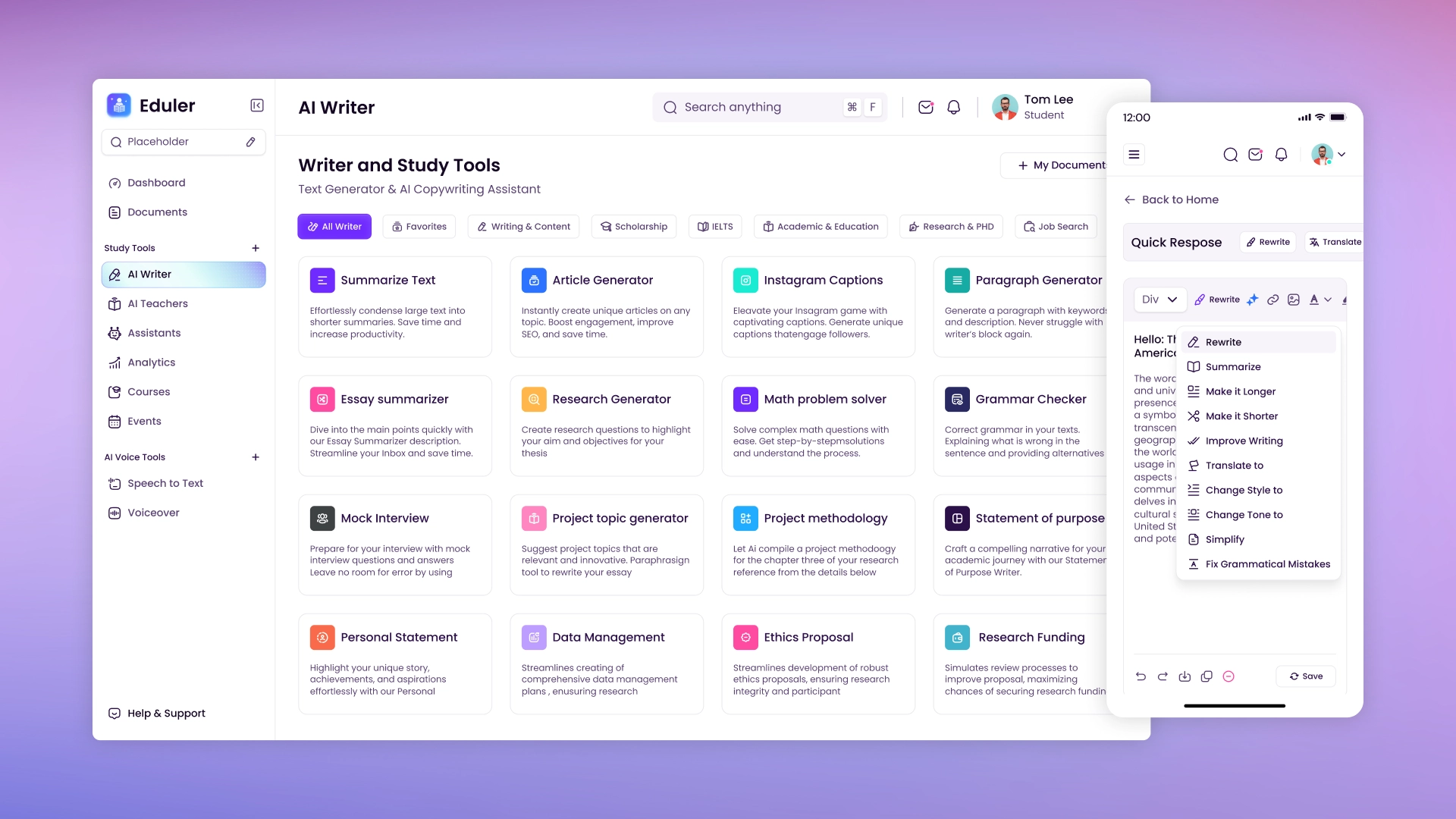
How to order CRM/ERP with AI automation
Modern companies cannot afford to waste time on manual process management and planning errors. Without automation, business slows down and opportunities for growth are lost. To remain competitive, companies need to order CRM and ERP systems with built-in artificial intelligence now.
AVADA MEDIA provides services for the development, implementation and support of comprehensive intelligent B2B automation solutions: from minimal to large-scale ecosystems with the integration of mobile applications, AI agents and analytics. Our team combines experience, modern technologies and agile development methodologies to create systems that not only meet the requirements of your business today, but also remain relevant tomorrow.
We offer optimal prices, full control over the project progress and strict adherence to deadlines, in order to provide you with the best result without compromises and delays. Contact us to discuss your project and get a personalized solution for your business.
FAQ
-
How does artificial intelligence learn in business systems?
AI in CRM/ERP learns from corporate data – transaction history, customer communications, production reports and other business processes. At the development stage, our specialists are engaged in training and training models, forming the basic functionality of the system. In the future, AI is able to learn from new data, adapting to the specifics of the company and employee behavior, issuing more accurate forecasts, recommendations and action scenarios.
-
Can AI CPM work with unstable network connections?
Yes, we develop mobile CRM systems for field employees that can work offline. All information is synchronized when connected to the Internet, so employees have access to key data even in areas without connectivity. This is especially important for sales representatives, service engineers or logisticians who often work on the road.
-
How much does it cost to implement a custom CRM or ERP with AI automation?
The cost of development, implementation and support depends on the scale of the project: the number of users and modules, the level of integrations and the depth of customization of AI functions. Complex AI ecosystems require serious investments, but at the same time they quickly pay off and provide maximum effect for the business. We help you choose the optimal starting option, which can be expanded if necessary, and form an individual offer taking into account the budget and goals of the company.
-
What are the terms of development and implementation of such a system?
The minimum development time for CRM or ERP with AI is from 4 months for basic projects. More advanced and complex solutions with multiple integrations and advanced AI modules require more time. We offer optimal terms and regularly inform the client about the development progress.
-
Is it possible to implement AI features in stages?
Yes, this approach allows the company to gradually adapt to new tools. First, basic functions are implemented: task automation, AI notifications, basic analytics. Then, advanced AI modules are connected - forecasting, triggers, integration with external services.
-
If a company already has a CRM/ERP, can AI be implemented in it?
Most existing systems can be enhanced by integrating AI modules. This could be a customer chatbot, predictive analytics, or intelligent messaging. However, before implementation, an architecture audit is conducted to assess how ready the system is for expansion.
-
Is it possible to train the system to the specifics of a particular industry – for example, manufacturing, logistics, eCommerce?
This is one of the key benefits of AI in CRM and ERP. Models are trained on your data: production reports, warehouse operation logs, eCommerce statistics. This approach helps the system make more accurate forecasts, take into account industry risks and accelerate processes specifically in your field.
-
Is it possible to integrate external AI services or custom models into CRM/ERP?
Yes, CRM and ERP systems allow you to integrate both external AI services and internal custom models. External services include ChatGPT, NLP models, voice assistants and analytics, which are connected via API or low-code platforms to expand functionality. Internal custom models are created and trained specifically on your company's data, perform unique tasks and can be built directly into the system to support business processes.




